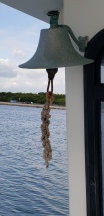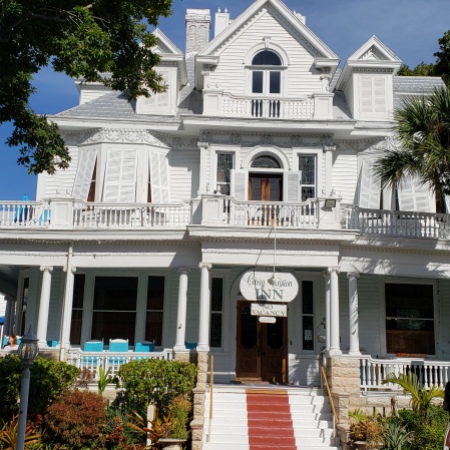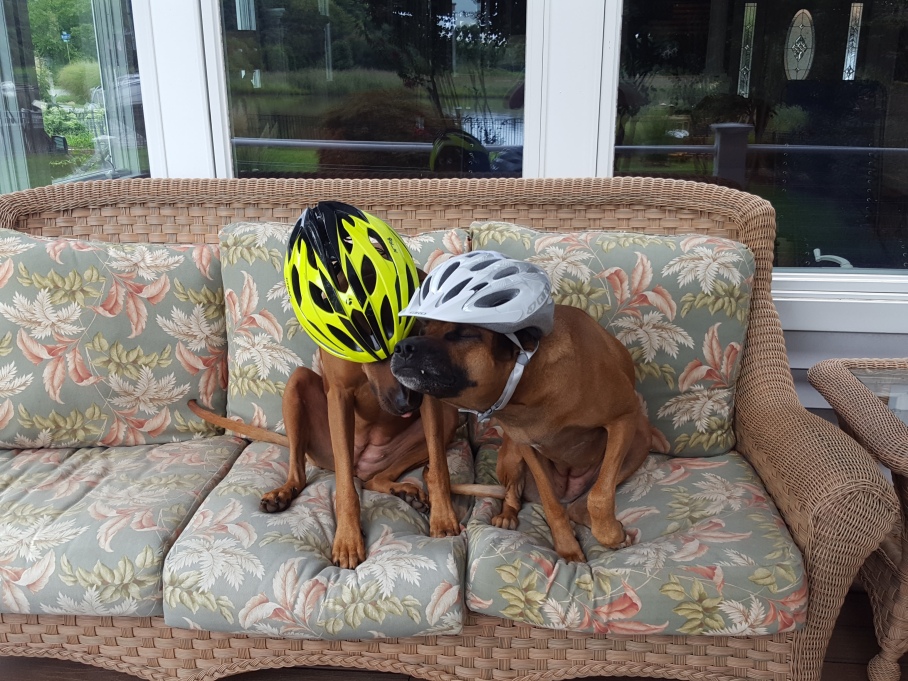l 
“SLOWING! SLOWING! SLOWING!”
I see the lowered palms of fingerless gloved hands, signaling the universal sign for “stop.” Six hundred bicycle riders pack up, waiting for the front to re-gain momentum. They’d come to a small hill and were inching up. Now moving too slowly to stay vertical – and having demonstrated the Charlie Chaplin static “stop and drop” one time too often, I kicked my cleat out of my pedal and stepped one foot onto the asphalt. We were about two miles into a 110 – mile ride.
This was going to be a long weekend.
I shivered, breathing in the fog separating me from the sun and studied the shrouded landscape, flecked by 400,000 simple white grave markers. The route, which began in Arlington, had taken us through the National Cemetery, then would go on through Joint Base Myer-Henderson Hall, next passing the silent, swanky homes in Potomac, up the substantial climbs of Poolesville and into Fredrick, Maryland for an overnight stay. The next morning we’d head out toward Gettysburg, where the hills would grow steeper and closer together, the road finally flattening a bit through the battlefield then on toward a celebratory finish line.
Leading us was a group of wounded or otherwise disabled riders, mostly military veterans, using hand cranked, three – wheeled bikes. It took an extraordinary amount of effort to ascend. But they screamed downhill like cannonballs. All the hand cycles had push poles, so able-bodied riders could assist at any time.

The pack began to inch forward.
A few minutes later I hit the same small hill but had so little momentum, I slammed into a higher gear, grinding up. We were all still packed in pretty tightly, which normally gives me the jitters. But the pace was slow, so I didn’t worry too much about crashing. I glanced at my husband, Jon, who looked as cold as I felt. I longed for a bigger hill to warm me up. He told me to be careful what I wished for.
This was our first “Face of America” ride, in which hundreds of cyclists come from all over the country, having raised hundreds, some, thousands of dollars for the organization which hosts all sorts of similar rides across the country. Our friend, Colonel Greg Gadson had invited us to be on his team. He was one of the guys up front.
Fifteen miles of jamming up- then spreading out later, we came to our first rest stop. Normally, on an organized ride, these stops are optional, but safety on this one stipulates that everyone stops together, then heads back out together. Normally the stops are brief, as most riders are in it to cross the finish line as soon as possible, leaving nothing on the road. We were probably stopped here though, for more than 30 minutes. We chatted with Greg. We nibbled on bananas and homemade cookies, Jon seeking out my favorites: chocolate chip. Finally, we heard the sound of the escort motorcycles revving up and headed back to re-mount and be paced back onto the road. About fifteen miles later, we repeated the exercise. By now the sun was breaking through. It was becoming a beautiful day. I tilted my face toward the warmth and removed a layer of clothing. I thanked the volunteers. I offhandedly began receiving cameras passed to me to take photos of their owners with Greg. There was a constant stream. I listened to countless stories of how they knew him, wanted to know him, saw him in The Movie, or had met him along the way of seven other Face of America rides he’d done. Jon fetched coffee and water for the two of us. Then the motorcycles cued us back to our bikes.
It was like any other organized ride we’d done, but in slow motion.
“SLOOOOOWWWWWING!!!”
I tapped my brakes. A guy wearing Mardi Gras beads pulled up next to me.
“Hey, did you have to take your shirt off to get those?” I asked.
“Yeah,” said the man, who was slightly paunchy and well into his 60’s. “It got pretty crazy last night.” We laughed and talked. He had come from Myrtle Beach and was riding with his son, who’d traveled from Missouri.
The pack thinned and we hammered on.
The lunch break lasted around an hour. There were sandwiches, and a band. Everyone stood in the food line, asking about home towns and how many times you’d done the ride. The veterans (military and non) welcomed both of us, treating us as new club members who would surely be back again. Jon and I both peeled down to our base layers: Our “Face of America” jerseys. Now, we blended.
The terrain rolled ahead, and we rolled with it, churning on the ups, braking on the downs. Just when it seemed we were no longer wheel to wheel there’d be an urgent bellow from the back.
“MOVE TO THE RIGHT!! HAND CYCLE COMING UP!!!” Then everyone would smush over, pedal to pedal, while a hand cyclist, being pushed by a ride marshal would scream by, the low-rider’s fists, a blur, the marshal barely breathing hard.
There were probably thirty marshals all together- all tall and lean and cool as cucumbers passing easily through what at any moment could become a slow speed peloton derailment.
As I ambled along, another tall, lean one pulled along side me. I recognized him as Jon Brideau the newly anointed Executive Director of World Team Sports, which organizes Face of America.
“EVERYONE STAY TO THE RIGHT, PLEASE!” he called ahead. “WE ONLY GET ONE LANE HERE. THERE IS ACTIVE TRAFFIC!”
“You have a hard job,” I remarked.
He smiled. “No, it’s not at all. I mean, you can just tell people, and after that it’s up to them. So how did you get involved in this ride?”
I explained our connection to Greg, how I’d met him at Walter Reed and had written a book about him, but that it now needed to be re-written.
“How does one go about doing that, re-writing a whole book?” he asked.
“I have no idea,” I answered, marveling that the guy in charge of this whole glob of potential biking chaos was pedaling along side me, talking as if I were the only one on the road.
He laughed.
“That’s why I’m going to start an MFA program at Pine Manor in Boston this summer,” I said. “This way I’ll have a whole faculty to help me.”
“That’s so cool, really awesome, great,” he said, looking right at me. “I’m from that area. I’ll tell you a secret about Pine Manor.” Then he told me the secret.
Something got his attention and he pedaled on ahead.
How was it that someone who’s devoted his career to helping less -able people, thinks I’m doing something cool?
The last rest stop was shorter, as clouds darkened overhead. The rains came just as we pulled into our last stop for the day- at the Flying Dog Brewery. A beer, a quiet dinner with our team captain, and a short night later, we were back on our bikes. Temperatures overnight had dropped significantly.
The shiver-fest was compounded by 18 mile -per- hour winds. We warmed in the pack and howled through the down-hills.
The countryside was beautiful and endless. It was occasionally dotted by people who came out of their warm homes to stand in the icy wind to cheer us on. It made me feel less scared about America than I have been in recent months. There were still so many good people.
“Mommy’s all right, Daddy’s all right…”
From somewhere nearby I heard Cheap Trick singing “Surrender.” A rider with a small orange speaker mounted to his handlebars was passing.
“I think that song was popular during my senior year of high school!” I laughed.
He slowed down, confessing to being old enough to appreciate the song in much the same way. We then mutually confessed to various dorky high school concerts and discussed more recent performances by artists who were aging out. He was somewhat grossed out at a “Meatloaf” concert while I was still mesmerized by a 70-ish Cher. After a few minutes he peeled off to meet up with his team. I looked at my odometer. We’d killed quite a few miles.
Increasingly, the pack-ups became like alcohol- free cocktail parties.
One woman, around my age, talked about wanting to meet Greg to show him a picture she’d taken the year before. I assured her he’d love to see it and we had a great conversation about one lesson Greg had taught me several years ago, when I’d complained about him taking close-up pictures of my face. And my wrinkles. “Do my legs define me?” he’d asked. “No.” “Well your wrinkles don’t define you,” he’d advised. The woman, whose name was a more European version of Terese, said she’d bet he’d taught me a lot. I said he had.
A marshal slowed down long enough to say he’d been recruited to the job by a friend he met through his work in disabled ski instruction. Then he spun up to grab a push pole.
Another rider explained that he came all the way from Puerto Rico to do the ride because he really liked it – “…and it gives my wife a break from me!”
I turned to my right to suddenly see the monuments of the Gettysburg battlefield.
“Look at that!” I gasped, involuntarily. One rider, clearly a multiple- timer, smiled knowingly. I’d always wanted to ride through this park. Now I was. And I didn’t have to rush.
I was thrilled, but a little sad. Two days ago, this ride had stretched ahead interminably. Now I didn’t want it to end. I felt the tiniest of lumps in my throat.
We are always pushing to move forward with our lives, our careers, our relationships. They stretch ahead, and we lurch toward the finish line, missing the markers, the perfectly aligned tombstones, the volunteers who baked cookies, the fathers and sons, the push poles and even – even the impact of our own goodness.
“It’s about the journey,” our team captain had said.
We should stop trying to finish it so soon.




 Percolator and empty propane canisters
Percolator and empty propane canisters

 Entry/exit chain and space for feet on the launch
Entry/exit chain and space for feet on the launch










